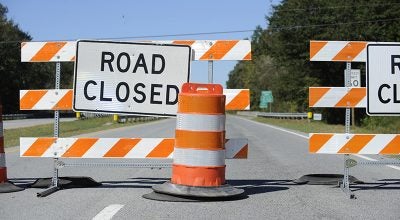Prepare for next time
Published 12:41 am Tuesday, September 6, 2011
Roy Cooper is the attorney general for North Carolina.
Many North Carolinians are cleaning up right now from Hurricane Irene, and others are still dealing with the damage from tornados that hit our state last spring. Unfortunately, these will not be the last disasters we experience so it’s not too early to make sure we’re prepared.
Your family’s safety should always come first, so if you ever need to evacuate on short notice don’t risk your safety by gathering your personal items and financial records. But if you take the time to prepare now, you’ll be better able to weather the next disaster and its aftermath.
Here are some tips from the N.C. Consumer Protection Division to help you get ready:
- List important numbers and store them in your wallet and cell phone. Numbers to include: your insurance agent’s phone number, your bank and credit card account and phone numbers, and the number for the Consumer Protection Division, 1-877-5-NO-SCAM.
- Keep important documents such as insurance policies, mortgage documents, bank account information, passports, Social Security cards, and health insurance cards in a safe place where you can grab them quickly if you need to evacuate. You may also want to store copies in a secure location, such as a waterproof/fireproof container or a bank safety deposit box.
- Take your bills, too. No matter what the weather, your creditors will still expect you to pay on time.
- Inventory your home to make filing an insurance claim simpler. Try to videotape or photograph each room, being sure to record your most valuable items. Store your inventory in a safe place, such as a waterproof/fireproof container or a bank safety deposit box. Consider storing photos or videos on a website that you can access from anywhere instead of just on your home computer.
- Keep some emergency cash on hand. If the power goes out, you won’t be able to use the ATM or shop by debit or credit card.
- Fuel up. If you may need to evacuate soon, keep your car’s gas tank full so you’ll be able to leave when you need to. Also, keep your cell phone and other portable devices charged in case you get stuck without power.
There’s much more you can do to plan for a disaster. More tips and general information on disasters is available at www.ncdoj.gov/disaster.aspx. For general tips on keeping your family safe during and after a disaster, visit readync.org.





